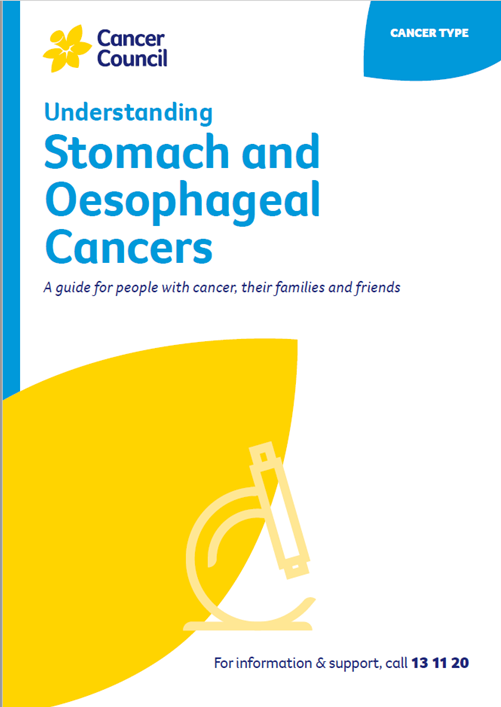- Home
- Oesophageal cancer
- Diagnosis
Oesophageal cancer diagnosis
If your GP suspects that you have oesophageal cancer, they will examine you, arrange initial tests and refer you to a specialist. The main tests are endoscopy and biopsy (the removal of a tissue sample). You may have other tests to check your overall health and see if the cancer has spread. Your specialist will review all the test results to work out the overall stage and prognosis of the cancer.
Learn more about:
For your community
Find information on coping with a cancer diagnosis in Arabic, Greek, Simplified and Traditional Chinese, and Vietnamese.
Podcast: Tests and Cancer
Listen to more of our podcast for people affected by cancer
Video: Understanding cancer tests, treatment and support
Being told you have cancer can be overwhelming — but you’re not alone. This video explains what happens after a diagnosis, the different treatment options, and how Cancer Council can support you. Click on Settings ![]() to turn on auto-generated subtitles in your language.
to turn on auto-generated subtitles in your language.
More resources
Prof David I Watson, Matthew Flinders Distinguished Professor of Surgery, Flinders University, and Senior Consultant Surgeon, Oesophago-Gastric Surgery Unit, Flinders Medical Centre, SA; Prof Bryan Burmeister, Senior Radiation Oncologist, GenesisCare Fraser Coast and Hervey Bay Hospital, QLD; Kieran Cahill, Consumer; Jessica Jong, Clinical Dietitian, Upper GI and Hepatobiliary Services, Peter MacCallum Cancer Centre, VIC; John Leung, Consumer; Prof Rajvinder Singh, Professor of Medicine, University of Adelaide, and Director, Gastroenterology Department and Head of Endoscopy, Lyell McEwin Hospital, SA; Dr Sarah Sutherland, Medical Oncologist, Chris O’Brien Lifehouse, NSW; Paula Swannock, Upper GI Cancer Nurse Consultant, St Vincent’s Hospital Melbourne, VIC; Rebecca Yeoh, 13 11 20 Consultant, Cancer Council Queensland.
View the Cancer Council NSW editorial policy.
View all publications or call 13 11 20 for free printed copies.

